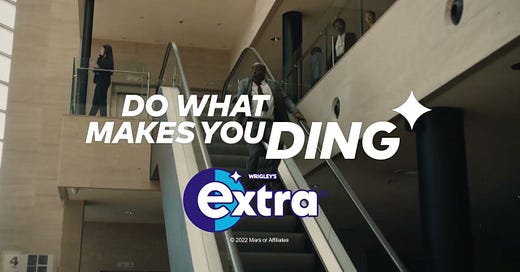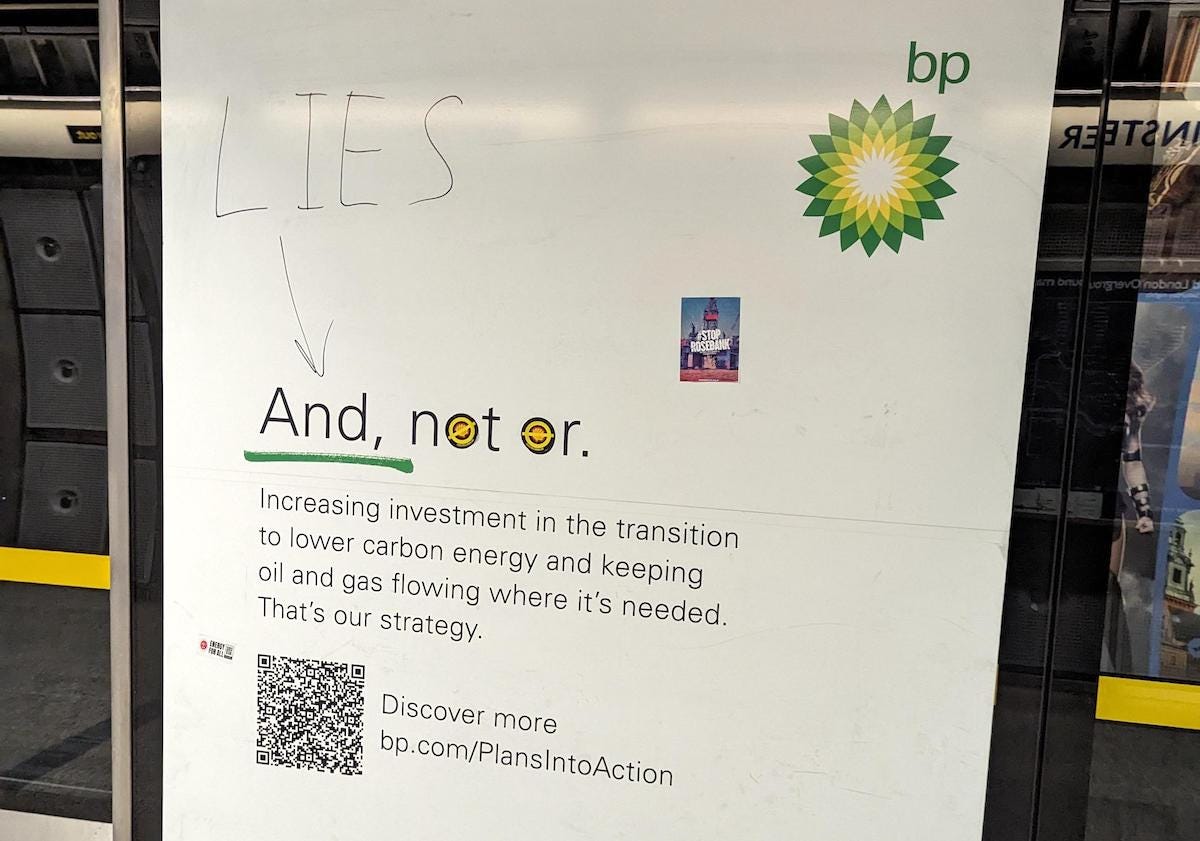Why Is Advertising So Awful Right Now?
Who is writing this (crappy) stuff? It can't all be AI-generated, right?
Wrigley's and BP have run advertising campaigns recently in the UK, for the Extra chewing gum line and BP's service station offers (M&S, EV charging etc.).
Both of these campaigns have played heavily on UK commercial radio and each is terrible.
The first, for Wrigley's Extra, particularly on radio, is incomprehensible and baffling. It features the kind of copy that can only be found in advertising and which is so jarring yet bland it appears to be an unchallenged AI output.
The essence of Wrigley's campaign is that chewing Extra gum can help its customers unleash their inner, unique (child-like) selves.
Inevitably.
As such, consuming Wrigley's Extra gum can, apparently, liberate the chewer to do whatever it is that makes the customer ding.
Ding.
Whatever that means.
The BP campaign, on the other hand, suggests that BP is beside the car driver (with a heavy leaning toward EV drivers, obviously) whether by sharing information on the location of charging points, or by offering discounts on service station purchases.
A feature of both campaigns is the positioning of the consumer’s a dominant inner child, which can be released by either chewing Wrigley'd gum or purchasing from BP when not behind the wheel.
In both instances the corporate sponsor is positioned, very traditionally, as being an enabler, provider and a friend of the consumer.
In the information age, this kind of overly-familiar advertising technique is clearly a problem, so both campaigns attempt to side-step this barrier between customer and corporate sponsor by utilising those most familiar current advertising techniques; psychological manipulation (we understand the inner you and can help you to be happy within yourself) and surreal realisation (because we’re groovy, just like you).
By so doing, both campaigns come across as being constructed, cliched and inauthentic (the ultimate corporate sin). No one outside of treatment or therapy speaks or acts like the supposed adults featured here. Only actors in big corporate advertisements behave like this.
The BP campaign, particularly, has picked up a certain amount of criticism since launching, especially on this authenticity front, with its poster advertising being vandalised (and this vandalism being shared online).
This is partly down to the client and the sector BP works in (oil and gas - a difficult sell in the current climate activist-dominated culture), as much as the clumsy pitch and sell in the campaign itself.
On one level, BP cannot win with its messaging right now, regardless of what the corporation has to say.
But on another level, the headwinds the BP campaign has encountered also point to a deeper crisis of confidence in Western capitalism and the encouragement for so many college graduates to pursue a social justice agenda.
Against this backdrop, advertising in the public arena is a constant battle not only to be heard but to exist at all; something not helped by a less-than-sophisticated approach in terms of understanding the ever-changing desires of individuals, campaign delivery and positioning.
What makes modern media-savvy consumers ding?
Not false advertising, that's for sure.






